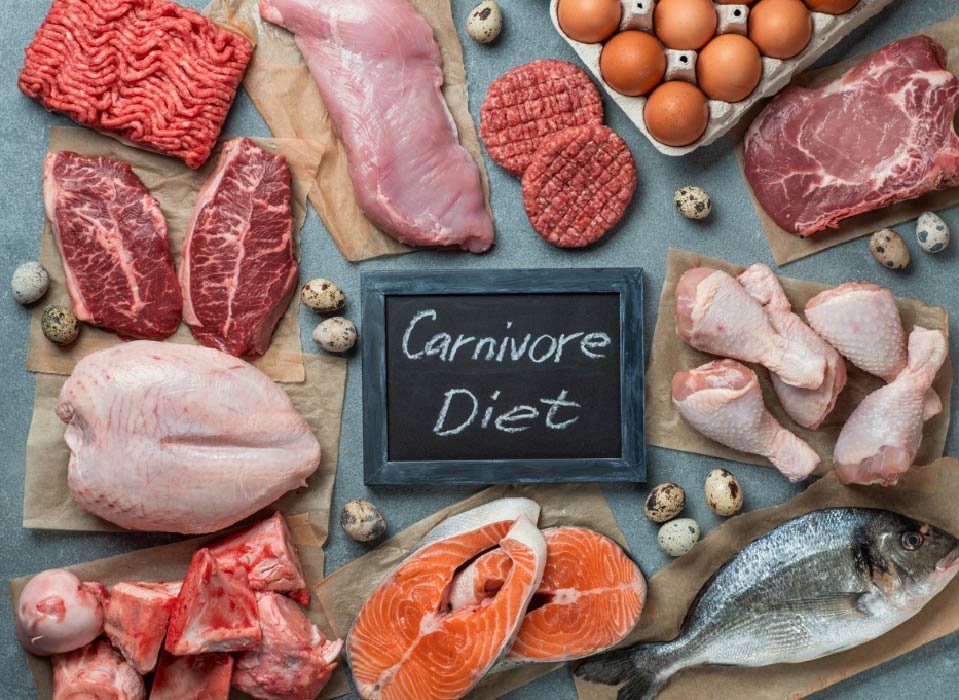Fitness
Following a Carnivore Diet: A Complete Guide

Following a carnivore diet has recently gained significant attention as a controversial yet effective nutritional approach. This diet involves avoiding all plant-based foods and consuming only animal-based products, including meat, fish, eggs, and dairy. While critics highlight potential deficiencies in vitamins and possible long-term health risks, proponents argue that this diet can lead to weight loss, improved mental clarity, and reduced inflammation. This essay will explore the benefits, risks, and strategies for effectively implementing a carnivore diet.
Benefits of the Carnivore Diet
- **Weight Loss**
A high protein intake encourages feelings of fullness, which lowers overall calorie consumption, and the carnivore diet excludes carbohydrates, which puts the body into a state of ketosis, where it burns fat for fuel rather than glucose, which can result in quick weight reduction.
- Improved Mental Clarity and Energy Levels
Due to the steady blood sugar levels that a zero-carb diet maintains, many devotees report increased focus, mental clarity, and long-lasting energy. This diet also eliminates allergies and dietary sensitivity that are frequently present in plant-based foods.
- Better Digestive Health
By eliminating fibre and plant toxins that can cause bloating, gas, and pain, the diet helps some people with irritable bowel syndrome (IBS) or other digestive problems.
How to Get Started on the Carnivore Diet
The stringent, high-protein, high-fat, and low-carb diet is known as the carnivore diet. It is predicated on the notion that people evolved primarily to consume meat and that avoiding plant-based diets can improve health. The diet is straightforward: Anything that originates from an animal can be consumed. The main foods consist of:
- Meat –Beef, pork, lamb, chicken, turkey, and other types of meat from animals.
- Fish and seafood – Salmon, tuna, shrimp, and other varieties.
- Eggs – Whole eggs, ideally those reared on pasture.
- Animal fats – Suet, tallow, lard, and butter are types of fats used in cooking and food preparation.
- Dairy (optional) – Yoghurt, cheese, and heavy cream for those who can handle it.
All carbohydrates, including vegetables, fruits, grains, nuts, seeds, and processed foods, are strictly avoided.
Foods to Eat and Avoid

Allowed Foods:
- Beef includes various types such as steak, ground beef, and organ meats.
- Pork products, including bacon, ribs, and chops.
- Poultry includes chicken, turkey, and duck.
- Fish and seafood
- eggs
- Dairy products such as butter, cheese, and heavy cream may be included if they are tolerated.
Foods to Avoid:
- Vegetables and fruits
- Grains and legumes
- Sugars and artificial sweeteners
- Processed foods and seed oils
Conclusion
The Carnivore Diet is a simple yet powerful method for weight loss, energy enhancement, and health improvement. Many people gain a great deal from concentrating on nutrient-dense animal diets. But it’s crucial to pay attention to your body and make any necessary adjustments. To be sure this diet fits your needs, speak with a healthcare provider if you’re thinking about following it.
Are you prepared to attempt the Carnivore Diet? Take advantage of the ease of this animal-based diet by beginning with premium meats.
For More Information Visit Coopermagazine
-

 Celebrity1 year ago
Celebrity1 year agoWho Is Jennifer Rauchet?: All You Need To Know About Pete Hegseth’s Wife
-

 Celebrity1 year ago
Celebrity1 year agoWho Is Mindy Jennings?: All You Need To Know About Ken Jennings Wife
-

 Celebrity1 year ago
Celebrity1 year agoWho Is Enrica Cenzatti?: The Untold Story of Andrea Bocelli’s Ex-Wife
-

 Celebrity1 year ago
Celebrity1 year agoWho Is Klarissa Munz: The Untold Story of Freddie Highmore’s Wife
















